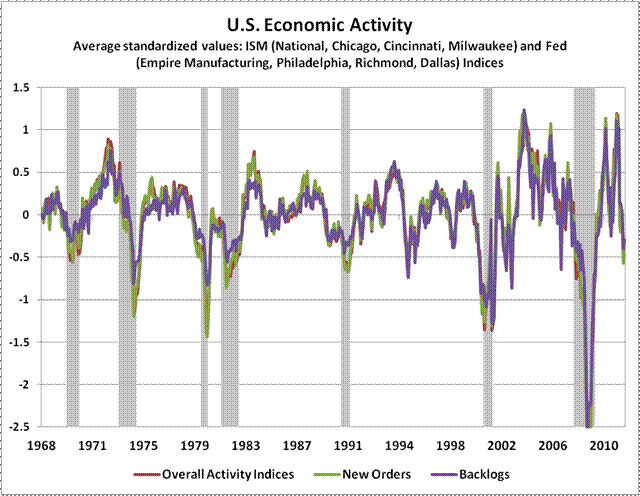(Reuters) – Asian shares and the euro edged up on Monday after the leaders of France and Germany pledged to unveil a comprehensive plan to solve the euro zone’s two-year-old sovereign debt crisis by the end of the month.
European policymakers have been under pressure from volatile financial markets, amid fears that the crisis is heading inexorably toward a default by Greece — and perhaps others — that could unleash turmoil in the banking system.
German Chancellor Angela Merkel and French President Nicolas Sarkozy said after talks in Berlin on Sunday that their goal was to come up with a sustainable answer for Greece’s woes, agree how to recapitalise European banks and present a plan for accelerating economic coordination in the euro zone by a G20 summit in Cannes on November 3-4.
In many ways, though, Europe faces an even more complex situation now than the United States did three years ago. After all, whatever the complexities of the U.S. Congress, it is one legislature, not 17. And Congress was not being asked to make sacrifices on the same scale that Europe is.
Belgium will buy the Belgian banking business of Dexia for 4 billion euros ($5.4 billion) and provide the bulk of guarantees to cover leftover assets of the parent group, the Belgian government said on Monday.
Belgium would provide 60.5 percent of guarantees to cover 90 billion euros of assets, Belgium’s prime minister Yves Leterme told a news conference.
the chart below updates one of our composite measures of U.S. economic activity, reflecting a broad set of ISM and regional Fed surveys. While the slight uptick in a few of these survey measures has been the basis of a strikingly premature “all clear” attitude taken on by Wall Street analysts, the fluctuation has been entirely negligible, and represents a tiny fraction of typical random month-to-month noise. It is equally important to recognize that the ISM indices tend to lag our Recession Warning Composite and our broader ensemble models (and also lag ECRI’s measures) by nearly 13 weeks, while payroll employment demonstrates a slightly greater lag. Given that the earliest signal – the Recession Warning Composite – deteriorated at the beginning of August, the October ISM, and even more likely the November reading, is really the window of concern. Suffice it to say that the recent evidence is generally more confirming than contradictory of recession concerns.
Economics:
Monday
Nothing
Tuesday
Treasury auctions 3-year notes
Wednesday
FOMC minutes
Treasury auctions 10-year bonds
Cleveland Fed President Sandra Pianalto speaks
Philadelphia Fed President Charles Plosser speaks
Jean-Claude Trichet speaks
Thursday
Jobless claims
International trade
Treasury auctions 30-year bonds
Philadelphia Fed President Charles Plosser speaks again
Minneapolis Fed President Narayana Kocherlakota speaks
Friday
G20 finance ministers meet in Paris
Retail sales
Export/import prices
Business inventories
U. of Michigan consumer sentiment index
Earnings:
Monday
Nothing
Tuesday
Alcoa
Wednesday
Host Hotels
PepsiCo
Thursday
Safeway
J.P. Morgan Chase
Fastenal
Friday
Mattel
